Why Cats Purr
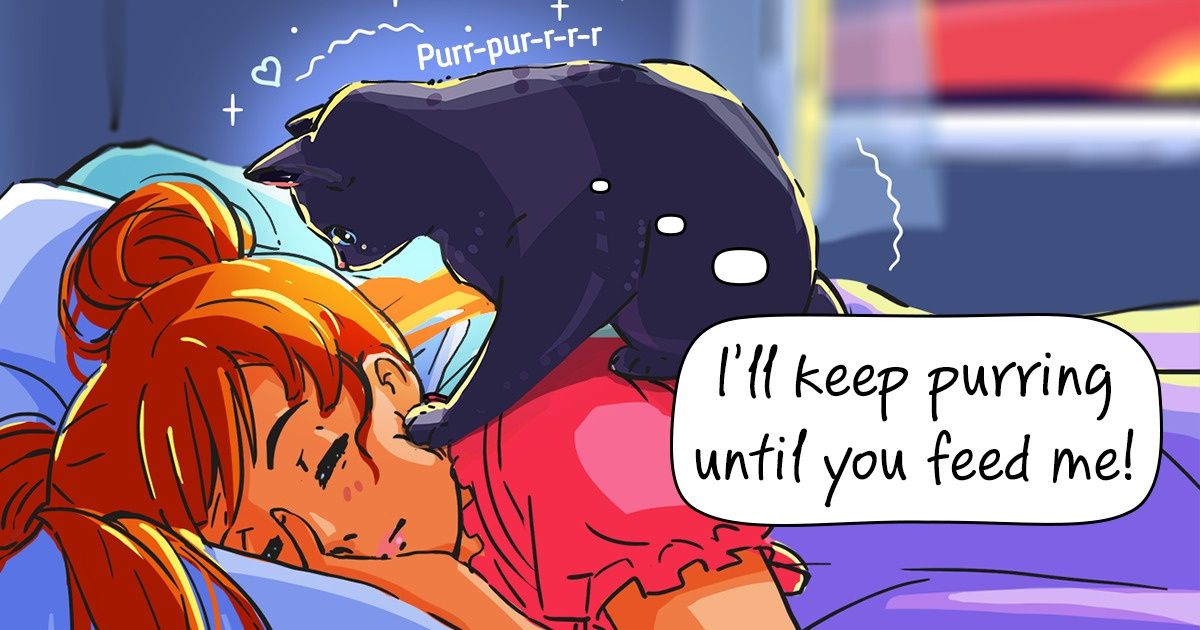
When we hear a cat purring, we often think that they are feeling good, enjoying the things happening around them, and thus, showing their love. But the reasons for this action can be much more serious. Sometimes this behavior manifests in stressful situations like at a vet appointment or while rehabilitating from a trauma. This means that not all purring cats are satisfied with their lives.
5-Minute Crafts learned about 5 reasons that cats purr that we think their owners should pay attention to.
1. Communication between a kitten with its mother
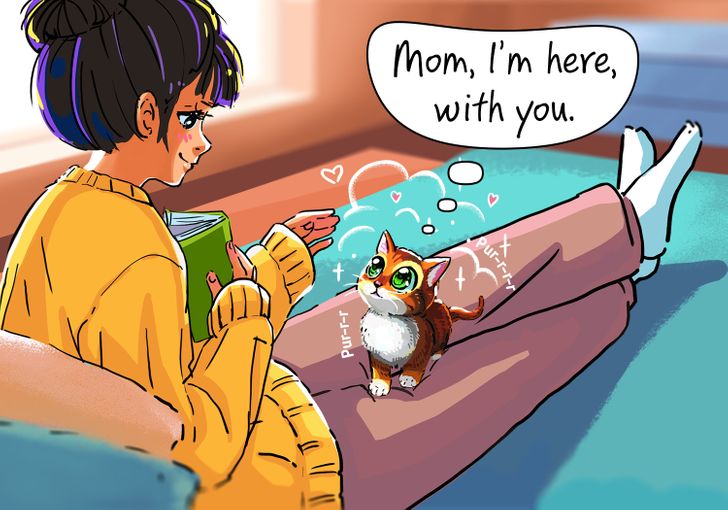
A mother cat purrs to inform her blind and deaf newborns about her location. It serves as some kind of a vibration beacon. Kittens, in their turn, take this as an example and start to purr back. This specific trait can stay with them as they grow or it can manifest later.
Moreover, kittens oftentimes have to knead their mother’s belly to make milk flow. They also purr during this procedure. That’s how an associative connection is formed and that’s why you can sometimes see adult cats making kneading movements with their paws as they purr. If your cat comes to you and starts to stomp and purr loudly, perhaps that’s how he or she is calling you their mom and is showing their love.
2. Healing
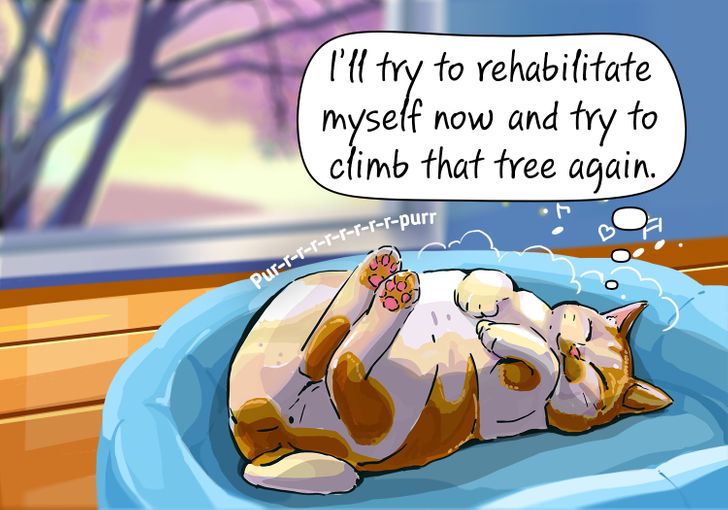
Cats purr both as they inhale and exhale at a frequency of 25 to 150 Hz. Sound frequencies in this range can increase bone density and aid in injury healing. Since cats can accumulate and restore energy during a long rest, it’s quite possible that purring is a mechanism that stimulates the restoration of muscles and bones.
3. Manipulating humans
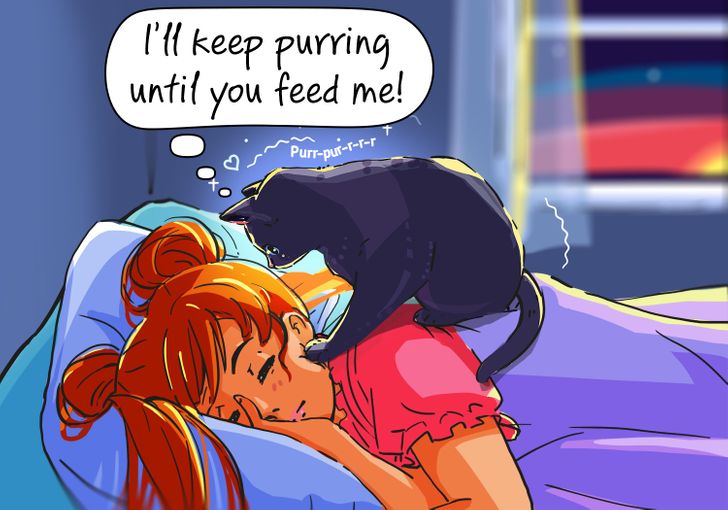
Cats use a “soliciting purr” to attract their owners’ attention and manipulate them. Unlike normal purring, this type includes sounds that are similar to the ones that a crying baby produces.
Ordinary purring in the morning can annoy the owner, which oftentimes ends in getting the pet out of the bedroom. This insistent purr is an absolutely different story. Most often it convinces the owners to wake up, get up, and fill the cat’s bowl with food.
4. Manifesting joy
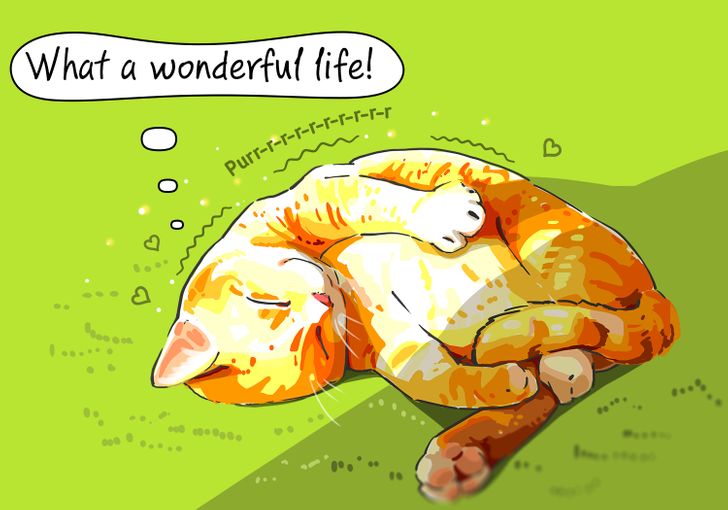
In most cases, cats will purr when they find themselves relaxed and emitting waves of calmness. It can also happen when you pet them. In this case, your 4-legged friend feels happy and displays their joy from communicating with you.
If your cat looks relaxed, has half-closed eyes, and has an almost motionless tail, you can confidently assume that your kitty is purring because they are in a good mood.
5. Communication
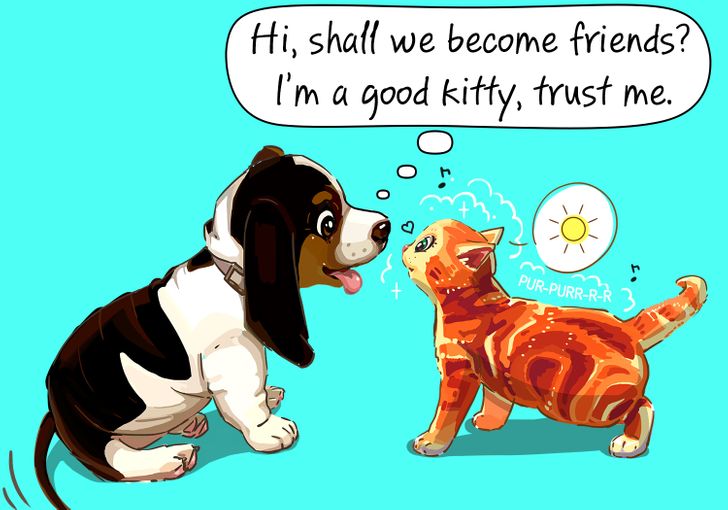
Cats purr when they welcome their owners home after a long working day. Some especially friendly pets do it when they meet someone new, in order to win them over.
However, vets have also noticed that sometimes cats purr when they are stressed like when visiting a vet clinic, for example.